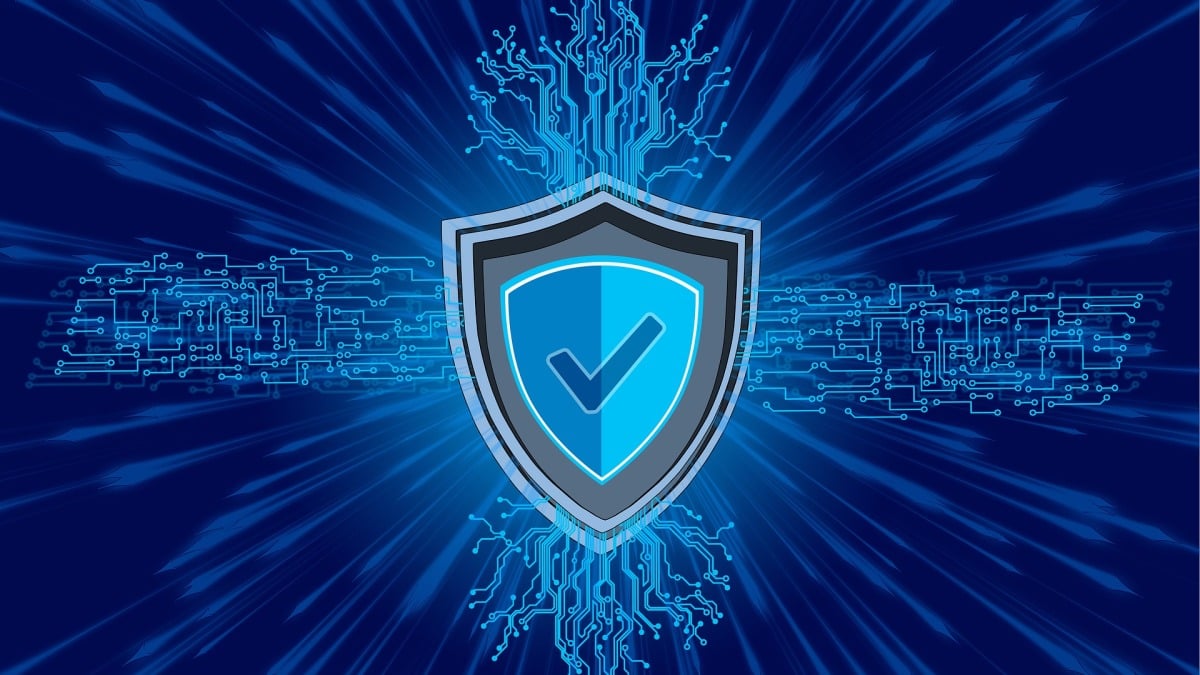Browsing or shopping online? These are best antivirus software options to keep your personal and financial data safe.
All products featured here are independently selected by our editors and writers. If you buy something through links on our site, Mashable may earn an affiliate commission.
Overview
Table of Contents
This content originally appeared on Mashable for a US audience and has been adapted for the AU audience.
Getting reliable antivirus software is as essential as a keyboard and a mouse. It’s absolute madness to log on without it, to be quite honest. It doesn’t matter what computer you have, there’s always something nasty lurking out there.
Staying safe from viruses, malware, ransomware, and phishing threats is just the start of it. A strong antivirus software package can protect you from much more. It’s not so much the hardware that’s in danger, but stuff like your private documents, banking details, and personal photos that could be at risk from cyber criminals.
Free antivirus software is an option but, typically, free solutions are limited. Luckily, there are plenty of options out there for securing your PC, though that can make it hard to know which package to purchase. Buying this stuff can be a chore, with so much jargon and impenetrable tech-speak to wade through. That’s why we’re here help point you in the right direction. Here’s some handy need-to-know information.
What is antivirus software?
Antivirus software is a programme designed to detect and remove viruses and other malicious software (or malware, as it’s better known) from your computer. They detect, isolate, and delete viruses, which prevents the malware from damaging your device. Antivirus products update automatically to provide protection against the latest viruses and malware.
What’s the difference between a virus and malware?
They’re different but also kind of the same. Malware is an umbrella term for all kinds of malicious software. Viruses are just one type of malware. Other types include trojans, spyware, ransomware, and scareware.
How do computer viruses work?
A computer virus will replicate itself and spread to devices as widely and quickly as possible (hence the name virus). Computer viruses infect applications and email. They are transmitted via websites, email attachments, storage devices, and even routers. Simple viruses can damage a hard disk or delete files. More sophisticated viruses can cause you to spam or may have clever ways of avoiding detection.
What’s anti-malware software?
Antivirus software detects and removes viruses and some other types of malicious software, while anti-malware is a program that safeguards the system from all sorts of attacks. Anti-malware tends to deal with newer, more sophisticated threats. Antivirus software often comes built into a new PC (don’t let that stop you upgrading to something more sophisticated) while anti-malware is usually an add-on.
What are the best antivirus features?
It’s tricky to pick one antivirus software because each one will suit different people and different types of computer usage. It’s worth remembering that having multiple antivirus software programs installed can cause issues, so it’s best to stick with just one. There are features worth looking out for to help make your choice. For instance, many threats stem from internet browsing so phishing protection can be a vital feature. Spyware and adware are also a problem, so it’s worth checking out antivirus software options that can scan for these too.
Finally, you need software that provides an on-demand malware scan, as well as a vulnerability scan, so that you’re always in control of what’s going on with your data. Security is a fast-moving field so you want software that keeps on top of new trends, such as the recent growth in ransomware keen to steal your files from under you.
What’s the best antivirus software?
If that all sounds a bit complicated, don’t sweat it — we’ve checked out the best paid antivirus software solutions and we’ve outlined why they’re worth the money. Generally, you get what you pay for, but what price can you put on keeping your computer (and, more importantly, the data on there) safe from potential threats?
These are the best antivirus solutions for every situation in 2024.

Over the years, Bitdefender has earned its reputation for being reliability when it comes to virus detection. That trend continues with Bitdefender Antivirus Plus. It’s solidly dependable for the vast majority of its users.
In terms of its most basic features, it has a strong antivirus component, real-time behavioural monitoring for any pesky suspicious files, and ransomware protection. Scanning speeds are reasonably efficient with a quick scan taking a matter of seconds, and a full scan gradually taking less time the more you use it. For many, that’s all you’re ever going to need, but Bitdefender throws in a few more features along the way too — malicious website blocking, a password manager tool, and ransomware detection are also included.
Overall, Bitdefender Antivirus Plus is the kind of software you can leave running in the background and it simply just works. It also doubles up well as a form of security suite, rather than simply virus protection tool.
The Good
The Bad
Details

Long gone are the days when households owned just one computer. Odds are that everyone in your home has their own PC or laptop, as well as a smartphone. Buy McAfee Total Protection once, and you’ll have a license for all of these systems. It’s possible to buy individual protection for half the price, but it’s a poor value for any household with more than one device that needs protecting. McAfee Total Protection isn’t entirely foolproof but it’s a well-priced solution for multiple devices.
Its scan takes an average length of time compared to its competitors, but it does a solid job of detecting most threats. Similarly, the built-in firewall detects most threats automatically, without much need for you to tweak or fiddle around with any settings (unless you want to, of course). In all cases, McAfee Total Protection hardly slows down the system it’s installed on, amply reminding you of why it’s worth the investment. Being able to use one program across multiple devices is a huge help in simplifying security matters at home, and it’s pretty effective too.
The Good
The Bad
Details

Creeping up on 30 years in the field, almost everyone has used a Norton Antivirus software tool at some stage. The company’s basic product – Norton Antivirus Plus – offers enhanced security for your devices and a wealth of additional features. However, while this may beguile enthusiasts, it can potentially confuse novices.
That’s immediately noticeable from the outset with Norton, which urges you to install not just the antivirus software, but multiple browser extensions. As part of its ability to protect you from dangerous search results, there’s Norton Safe Search, along with Norton Toolbar, which assigns each site a safety rating, and Norton Identity Safe (its password management tool). Such a wealth of options continue throughout the software, which is why it can be a little confusing for some, albeit very secure. It’s higher-tier security suite, Norton 360 Standard, also includes a VPN and SafeCam mode that detects if anyone tries to access your webcam.
The Good
The Bad
Details

Technology has progressed to the point today where no antivirus software slows down a normal PC that drastically, but they can still definitely have a negative impact on the performance of older PCs. Webroot’s antivirus software bucks that this with a super small footprint that means there’s no reason not to install it, even if your computer has seen far better days.
Occupying only about 15MB of disk space, Webroot SecureAnywhere AntiVirus takes predictably little time to install. Impressively, its system scan is also as speedy, taking less than a minute. Impressively, there’s room for a sandbox feature too, an unusual addition for any antivirus package, that lets you run dubious programs in an isolated environment to see if they are actually worthy of your suspicion or not.
The sole issue arises from the lack of independent test results for Webroot SecureAnywhere AntiVirus, but it’s a relatively small issue in something that, anecdotally, has consistently garnered good results.
The Good
The Bad
Details

A familiar name in the sector, Trend Micro Antivirus+ Security is a lot like the others, bar some very crucial new features. Trend Micro Antivirus+ Security approaches things a little differently than others, ensuring its ransomware detection is particularly effective.
Much of that is down to Trend Micro’s Folder Shield component. It blocks all access to protected files by any program or app that isn’t on your dedicated trusted list. By default, it covers the usual documents and pictures folders, but you can extend it to anything else of your choosing.
Elsewhere is the addition of Mute mode. This pauses all Trend-Micro-Antivirus+-Security-related activities as well as Windows Update while you’re otherwise preoccupied. Playing a game and don’t want to be disturbed by a pop-up? This is where you go, and is exactly why Trend Micro Antivirus+ Security is so good for gamers.
The Good
The Bad
Details

Dylan Haas is a Lead Shopping Reporter for Mashable, where he covers all things gaming, pets, fitness, sleep, and shopping events like Black Friday and Prime Day. Before joining the team at Mashable, Dylan received a B.A. in Communications from Pace University and contributed to publications like Paste Magazine, Bandsintown, and others following a brief stint as a marketing and management assistant in the music industry.
When he’s not writing or testing products, you can find Dylan playing lots of video games, working out, spending time with loved ones (especially his dog, Stevie), or watching reality TV. Follow him on X at @iamdylanhaas, or send him an email at [email protected].

Matt Ford is a freelance contributor to Mashable.
This newsletter may contain advertising, deals, or affiliate links. Subscribing to a newsletter indicates your consent to our Terms of Use and Privacy Policy. You may unsubscribe from the newsletters at any time.

